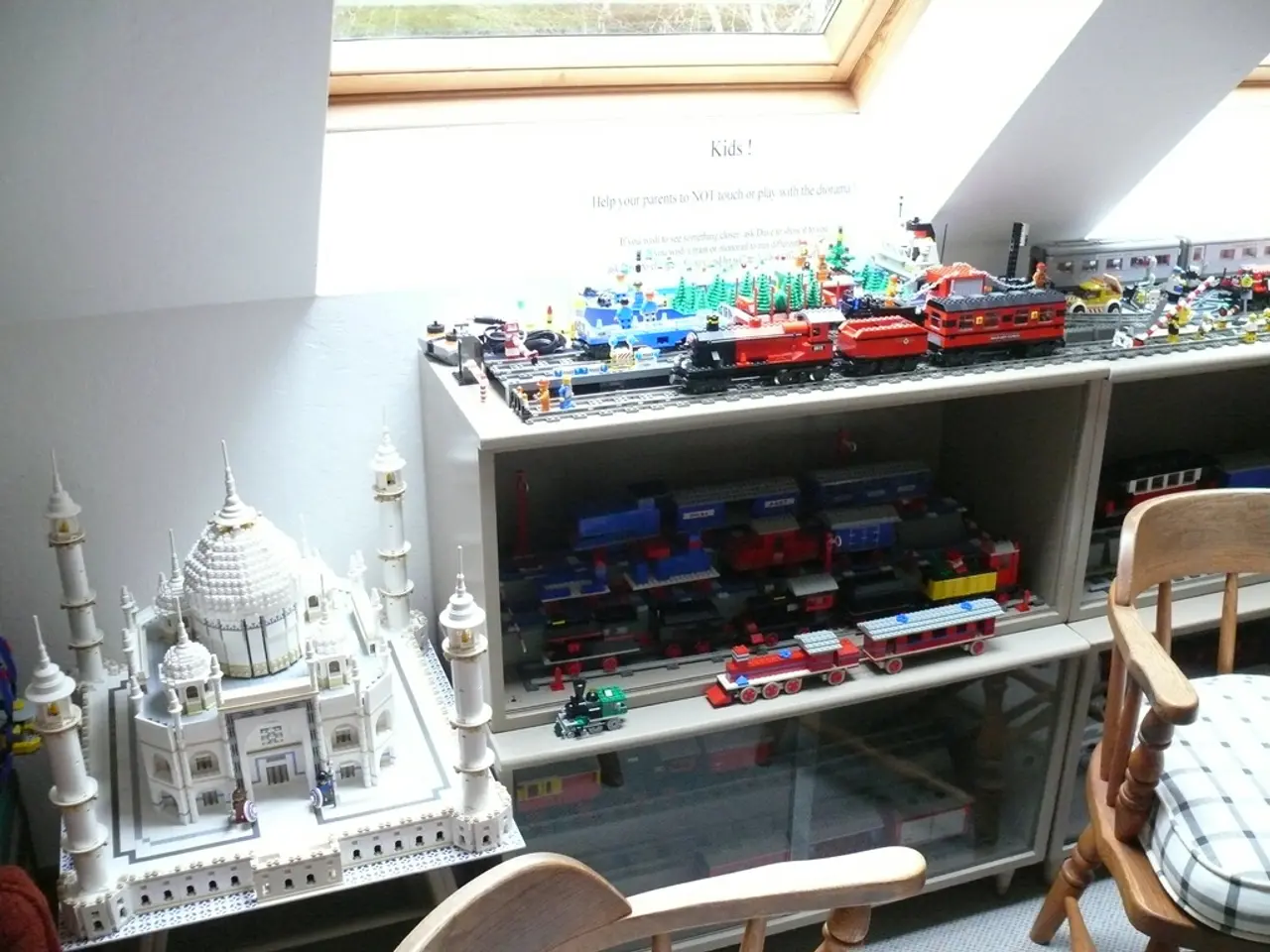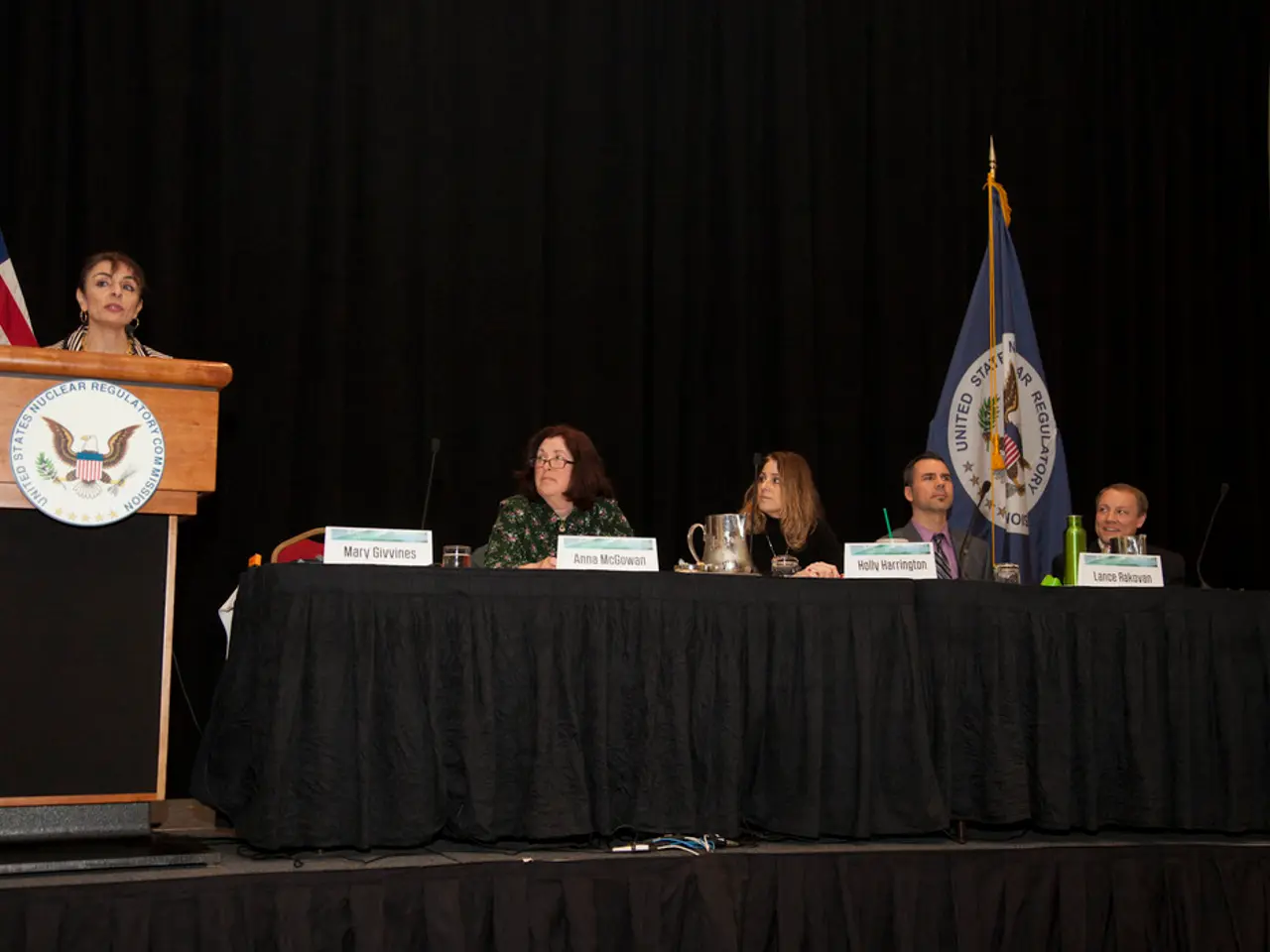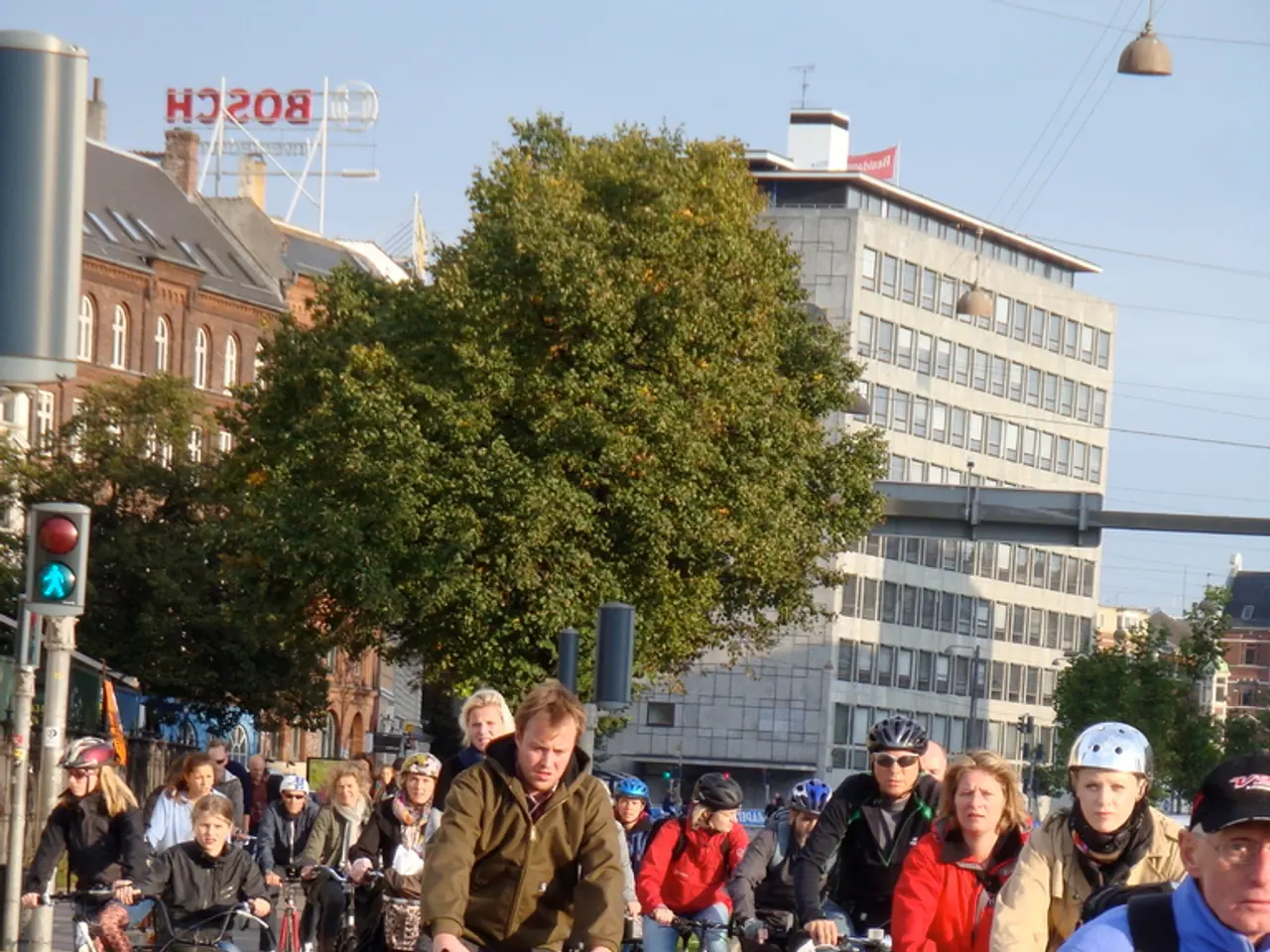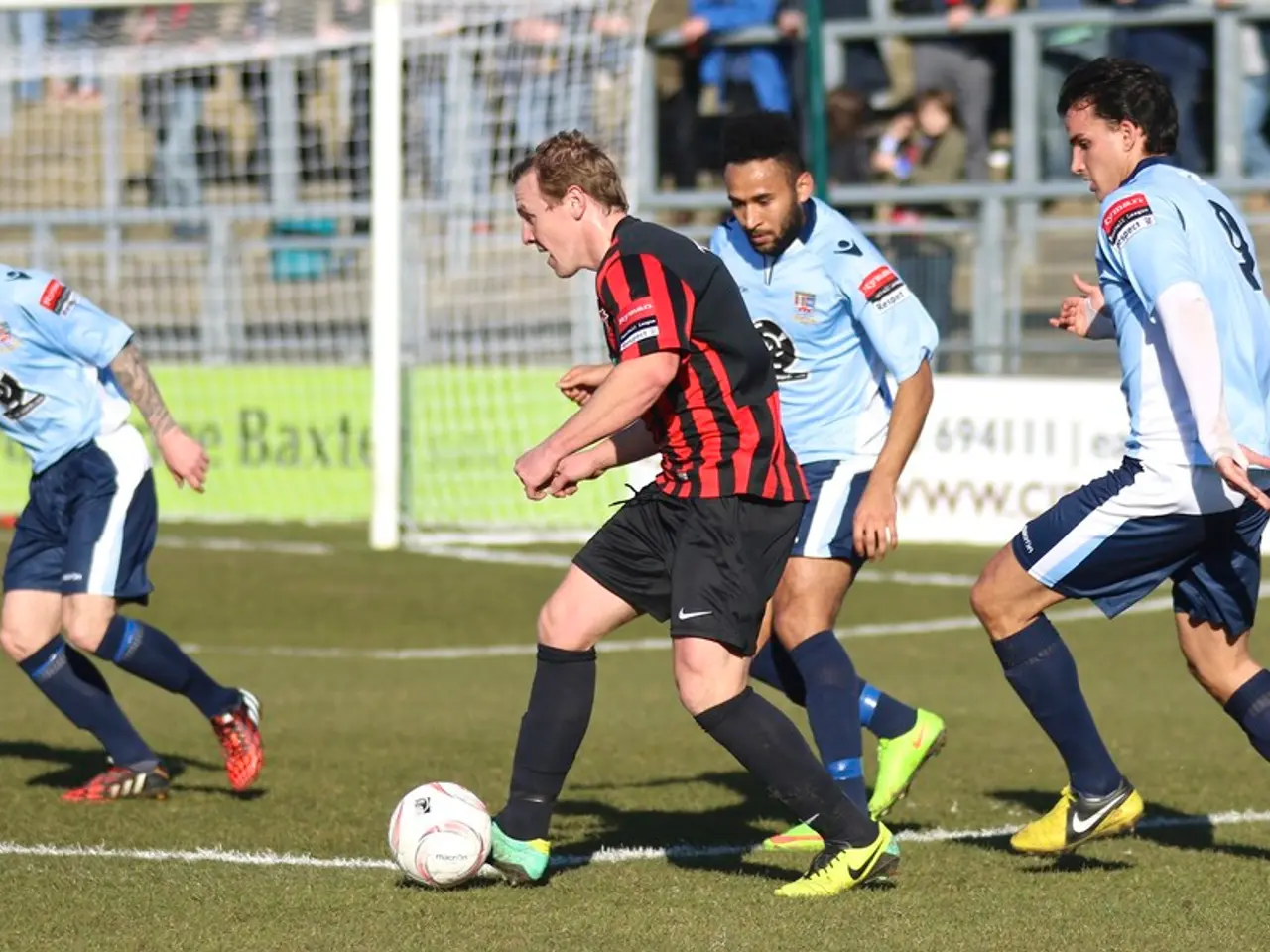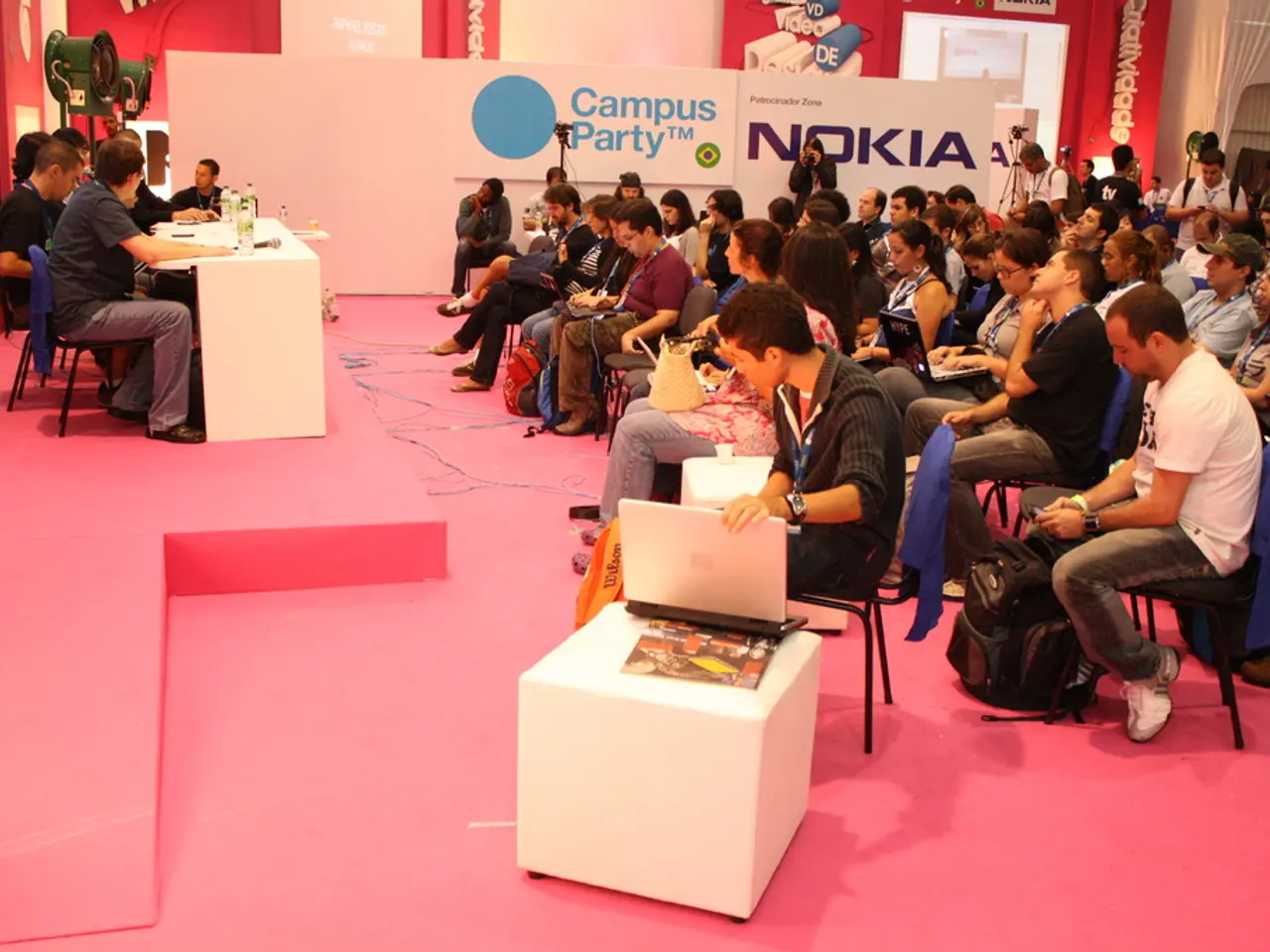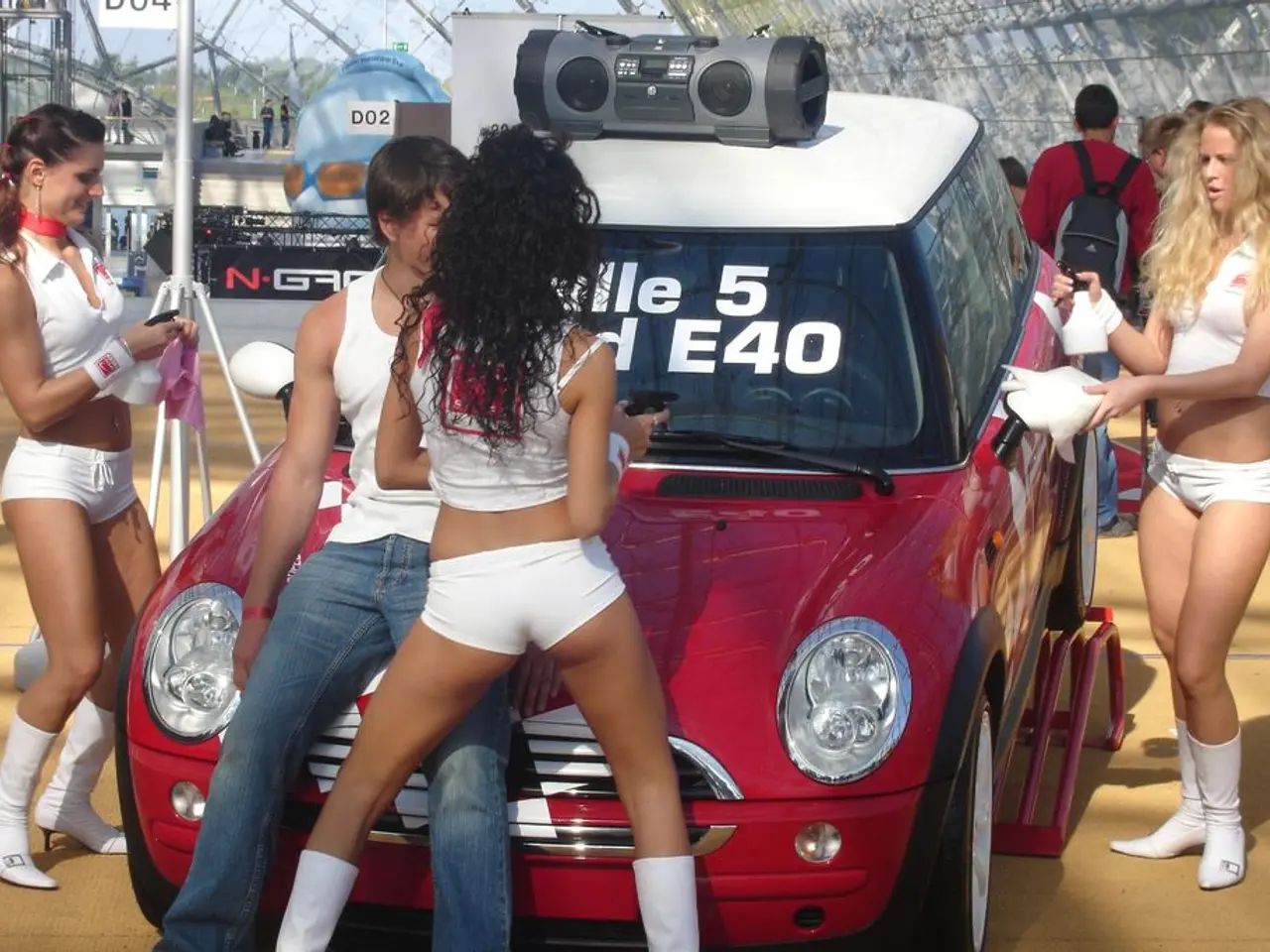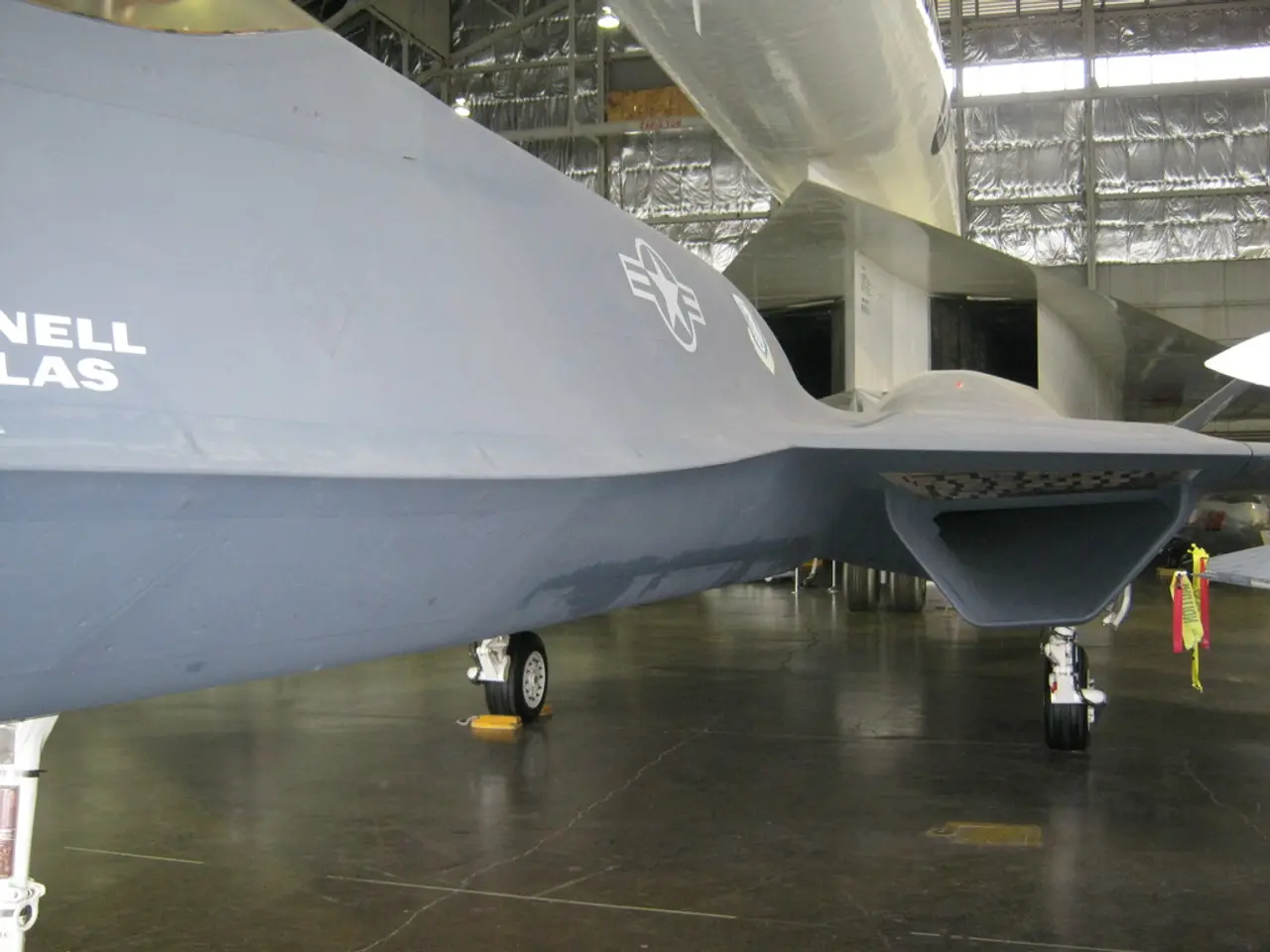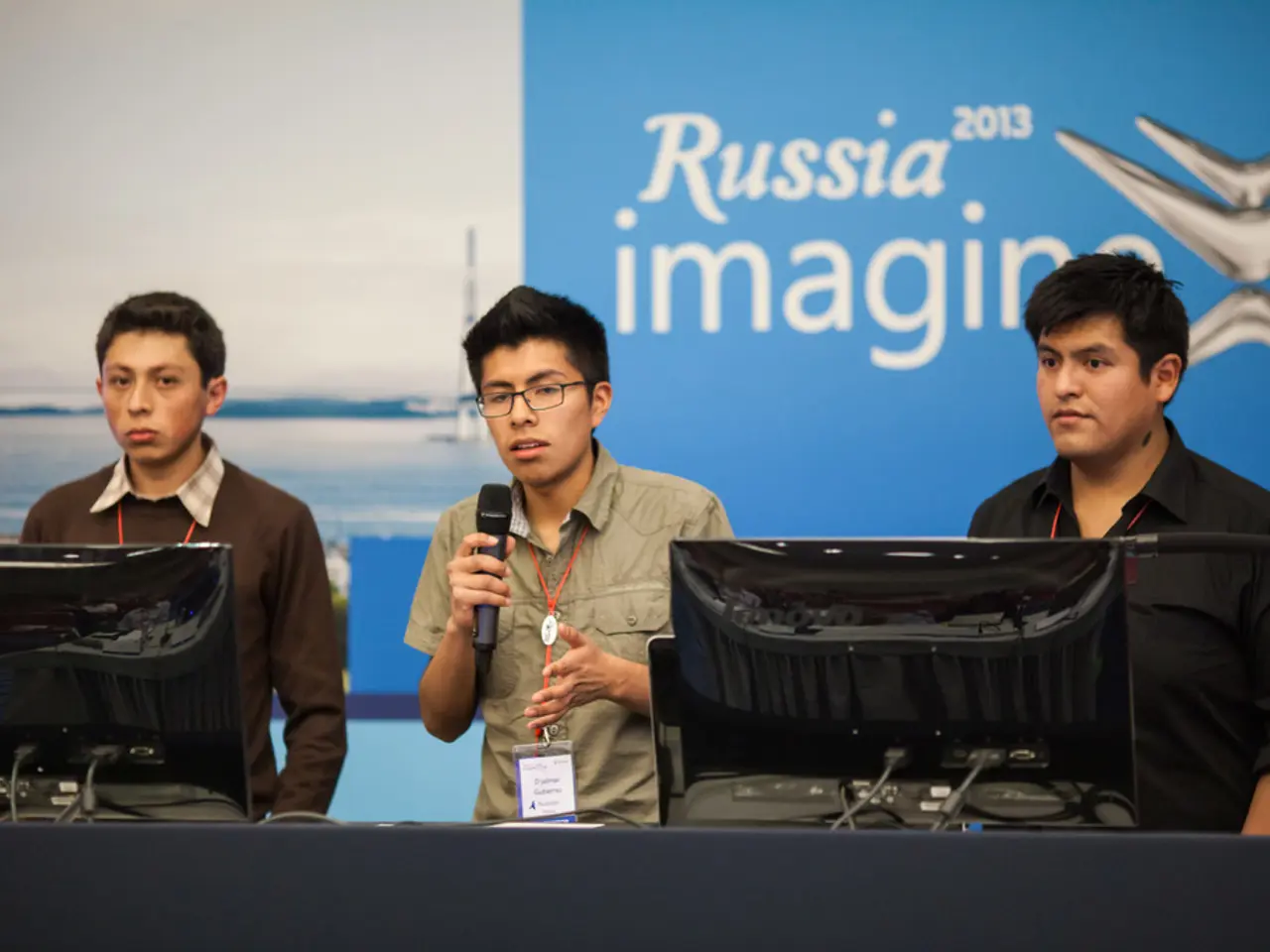Markus Krebs, previously a resident of Duisburg, has switch allegiances.
In the heart of Duisburg, two historically rival districts, Rumeln and Kaldenhausen, are bridging gaps through a series of unifying events. The catalyst for this change was a sightseeing tour led by long-time local politician Ferdi Seidelt and well-known Duisburg comedian Markus Krebs, who recently moved to Kaldenhausen.
The tour began at the old town hall of Rumeln-Kaldenhausen, where Seidelt's group has created an open-air museum. This museum is a testament to the area's rich history, showcasing symbolic exhibits about the 1934 union of Rumeln and Kaldenhausen, local farms, and the mining era from 1937 to 1973.
Krebs, eager to learn more about his new home, joined Seidelt on this journey. The tour was also aimed at cooling down long-standing local rivalries, a noble endeavour that seems to be gaining traction.
One of the highlights of the tour was the farmer's barn, symbolising the 200 smaller and larger farms that once existed in the region. The barn stands today thanks to the efforts of Murat Hizardere. Another significant stop was the coal mine shaft, honoring the Zeche Fritz era (1937 to 1973).
The population in Rumeln-Kaldenhausen flourished during this period, with the arrival of miners, railwaymen, Bayer people, and metalworkers. This influx of people has left a lasting impact on the district, shaping its culture and identity.
In a move to support the local football team, FC Rumeln-Kaldenhausen, Krebs will be the shirt sponsor for the team this year. His company, "Brennholzverleih," will also sponsor the club. Krebs' new program, "Bierschaum ist mein Lippenstift," will further contribute to the team's success.
The women's football team of FC Rumeln-Kaldenhausen made headlines when they won the UEFA Champions League, a feat that was orchestrated around Maren Meinert, Martina Voss, Inka Grings & Co. This women's football miracle was created at the same location where the open-air museum now stands.
Merve Kocar continues the cultural heritage of the Dimmer family at "Waldborn," another significant location in Rumeln-Kaldenhausen's history. Krebs and the "Waldborn" crew will offer special performances featuring Markus Krebs to the local population.
Seidelt, a volunteer municipal politician for 46 years in North Rhine-Westphalia, held various positions at the event location "Waldborn" for over 16 years. His dedication to preserving and promoting the district's history is evident in the open-air museum and the various events held at "Waldborn."
The sports field of FC Rumeln-Kaldenhausen is located nearby, making it a convenient venue for the team's matches and for community events. The coat of arms wall at the open-air museum shows the wedding of Rumeln and Kaldenhausen (1934), a poignant reminder of the unity that binds these two districts together.
With Krebs' involvement and the continued efforts of Seidelt and others, it seems that the divisions between Rumeln and Kaldenhausen are slowly being healed, one tour, one performance, and one match at a time.
The FC Rumeln-Kaldenhausen football team, now sponsored by Markus Krebs' company, aims to continue their success on the European stage, much like the women's team who recently won the UEFA Champions League. Meanwhile, Krebs and the "Waldborn" crew plan to entertain the local population with special performances, further unifying the once rival districts of Rumeln and Kaldenhausen.
